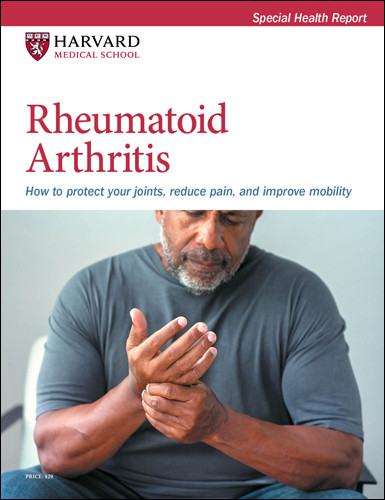Do glucosamine and chondroitin supplements actually work for arthritis?

When it comes to health supplements, glucosamine and chondroitin are among the most popular. Worldwide, annual spending on these supplements is predicted to reach $3.5 billion by 2025. So you'd think they must be highly effective.
And yet, that's not so clear.
Glucosamine and chondroitin, taken individually or in combination, are touted not only as relievers of joint pain but also as treatments to prevent joint disease. Yet a number of past studies have come to mixed conclusions; some small studies, most looking at osteoarthritis of the knee, found that people felt modestly better taking glucosamine and/or chondroitin, but at least as many have found no benefit.
For example:
- A 2018 review of previous research found that treating knee or hip osteoarthritis with glucosamine and chondroitin led to small improvements on a pain scale, but it wasn't clear that the pain relief was actually meaningful.
- A 2022 analysis of eight studies that included nearly 4,000 people with knee osteoarthritis found no convincing evidence that glucosamine and chondroitin provided major benefit.
- The case for these supplements protecting joint health or preventing arthritis from worsening is similarly weak.
A landmark study of glucosamine and chondroitin
A 2016 study of glucosamine and chondroitin enrolled 164 patients with knee pain due to osteoarthritis and gave half of them a combination of glucosamine and chondroitin; the other half received an identical placebo pill. The study was stopped early for an unusual reason: those taking the supplement actually reported worse symptoms than those taking a placebo. This raises the possibility that taking glucosamine and chondroitin might make your joints feel worse than doing nothing.
Did this study or subsequent research spell the end of people taking glucosamine, chondroitin, or both? Not at all! While the evidence of benefit is certainly not compelling, some studies have found that these supplements provide modest benefit, and people who feel it is helping them may not care so much about individual studies anyway. Even if a treatment is not effective on average, there may be folks who, for whatever reason, get real relief from it. Finally, people are taking glucosamine and/or chondroitin for a number of reasons and conditions other than osteoarthritis of the hip or knee, so these studies may not apply to them.
And what about the downsides?
In general, glucosamine and chondroitin are thought to be safe. However, as with any medication, there are potential risks. In some clinical trials, people taking the glucosamine-chondroitin combination have reported
- heartburn or abdominal pain
- diarrhea
- drowsiness
- headaches
- allergic reactions (especially if you have an allergy to shellfish).
Another concern is drug interactions, which may be a problem with any combination of medications. For example, chondroitin may interact with blood thinners such as warfarin, so the combination could increase the risk of bleeding.
Check with your doctor or pharmacist before taking glucosamine and/or chondroitin. Many doctors warn patients that the FDA does not regulate supplements such as glucosamine and chondroitin, so they may not contain the amounts stated on the label, or there could be contaminants in them.
And, of course, there is cost to consider — health insurance usually doesn't cover these supplements. (I found several glucosamine-chondroitin supplements online for about $12/month at a popular online store).
The bottom line
Should you give glucosamine/chondroitin a try? I've tried to keep an open mind. I recommend that you check with your doctor about interactions with other medications you're taking. Also, keep in mind that the FDA does not regulate these products, which are considered unproven. If you take these supplements without noticing clear improvement within a few months, I suggest you stop using them.
For advocates of glucosamine and/or chondroitin, studies finding no benefit or only slight improvement are unlikely to be the last word. There are different types and doses available, and they are taken for a number of different conditions (such as osteoarthritis of the hands or spine, for which there is even less supportive evidence). There could be certain situations in which they are particularly helpful. We'll need additional research to know what they are.
About the Author

Robert H. Shmerling, MD, Senior Faculty Editor, Harvard Health Publishing; Editorial Advisory Board Member, Harvard Health Publishing
Disclaimer:
As a service to our readers, Harvard Health Publishing provides access to our library of archived content. Please note the date of last review or update on all articles.
No content on this site, regardless of date, should ever be used as a substitute for direct medical advice from your doctor or other qualified clinician.
















